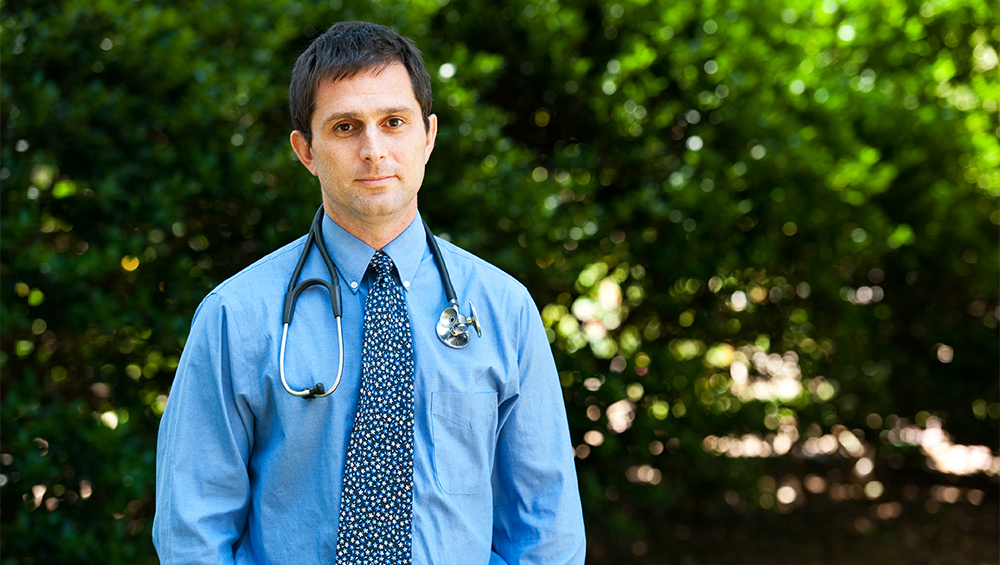Probiotic-Containing Yogurt Protects Against Microbiome Changes That Lead to Antibiotic-Induced Diarrhea, Study Finds

Posted in News Release | Tagged probiotics
Multidisciplinary Team of Researchers Identifies Mechanism of Protection Conferred by Probiotic Supplement
Media Contact
Karen Teber
km463@georgetown.edu
WASHINGTON (September 14, 2021) — Eating yogurt containing a particular strain of a well-studied probiotic appears to protect against harmful changes in the gut microbiome that are associated with antibiotic administration. That is the finding from a new randomized clinical trial led by researchers at Georgetown University Medical Center and the University of Maryland and recently published in the journal Nutrients.
The study found that yogurt containing the probiotic Bifidobacterium lactis BB-12 worked better than a placebo at maintaining the community of bacteria in the colon. The NIH has funded an additional follow-up study.
“This finding provides important new insights into the mechanisms by which the probiotic, BB-12, may protect against antibiotic-associated diarrhea,” said study co-leader Claire Fraser, PhD, Professor of Medicine and Dean’s Endowed Professor at the University of Maryland School of Medicine and director its Institute for Genome Sciences. “The new insights that we obtained regarding BB-12 reflect the multi-omics approach that we used in our study. This was possible only because of the different expertise that each of the principal investigators brought to this collaboration.”
In the study, 42 healthy volunteers were randomly assigned to consume a daily serving-size container of yogurt containing BB-12 along with a standard weeklong regimen of the antibiotic amoxicillin clavulanate. They continued to consume the yogurt every day for a week after finishing the antibiotic. An additional 20 participants served as the control group and were randomly assigned to consume a daily yogurt without the probiotic for two weeks while also taking the same antibiotic regimen.
The researchers found that levels of the short chain fatty acid acetate, a beneficial metabolite produced by the microbiota, were reduced in all subjects after taking the antibiotic; however, the reduction in acetate was significantly greater in subjects receiving the placebo yogurt as compared with BB-12 supplemented yogurt. Acetate levels in subjects who received BB-12 also returned to baseline levels by 30 days, while they remained below baseline in subjects receiving the placebo.
About one in five people who take antibiotics develop antibiotic-associated diarrhea due to the drugs disrupting the healthy gut microbiome. Patients may stop taking their medications early after developing diarrhea, which could cause their original infection to persist. A small percentage may develop a life-threatening infection with the bacteria C. difficile, which can reside in the gut but is usually kept in check by good bacteria in the microbiome.
“An important reason why our study may have demonstrated positive results may be the timing of the probiotic administration on the day antibiotics were initiated by the study volunteers,” said the study’s lead author, Daniel Merenstein, MD, professor of family medicine and director of research programs for the Department of Family Medicine at Georgetown University School of Medicine. “Starting the probiotic as early as possible, before the antibiotic symptoms have progressed, may result in a greater opportunity for the probiotic mechanisms to be expressed and may ultimately lead to more beneficial clinical outcomes.”
The researchers plan a follow-up study to further explore this question and decide when is the best time to consume a probiotic.
Funding research was supported by the National Center for Complementary and Integrative Health of the National Institutes of Health under Award Number R61AT009622. Additional support was provided by the University of Maryland School of Pharmacy Mass Spectrometry Center (SOP1841-IQB2014).
In addition to Merenstein and Fraser, authors include Robert F. Roberts, Tian Liu, Silvia Grant-Beurmann, Tina P. Tan, Keisha Herbin Smith, Tom Cronin, Olivia A. Martin, Mary Ellen Sanders, Sean C. Lucan, and Maureen A. Kane.
Sanders has been compensated for speaking engagements or for consulting from Associated British Foods, California Dairy Research Foundation, Church & Dwight, Danone North America, Fairlife, GlaxoSmithKline, Kerry, Mead Johnson, PepsiCo, and Trouw Nutrition. She has served on scientific advisory boards for Cargill, Sanofi, Danone North America, Danone Research, Winclove Probiotics and Yakult. She serves as the executive science officer for the International Scientific Association for Probiotics and Prebiotics. Merenstein has consulted for Bayer & Pfizer. SCL has been compensated both for speaking engagements and for serving on the Scientific and Nutritional Advisory Board of Epicure. Lucan has also consulted for Danone North America. The other authors report having no personal financial interests related to the study.
